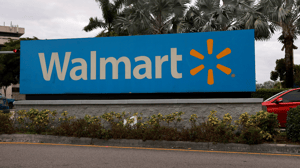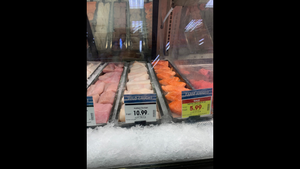A forum for contributed pieces from industry thought leaders, retailers, wholesalers and manufacturers. The views expressed are those of the authors.
Food industry 2025 comes into view
It’s only 2015 but we can already see 10 years out. That’s the conclusion of Technomic in a new and convincing report on where things are headed
May 26, 2015
It’s only 2015 but we can already see 10 years out. That’s the conclusion of Technomic in a new and convincing report on where things are headed. Here’s a sampling of findings in the report, called “Food Industry Transformation: The Next Decade.”
 • Sales of traditional shelf-stable and frozen foods in the grocery aisles will be “flat at best” by 2025, but demand for perishables will surge.
• Sales of traditional shelf-stable and frozen foods in the grocery aisles will be “flat at best” by 2025, but demand for perishables will surge.
• Supermarket fresh prepared foods are expected to advance 7.5% per year, as traditional supermarkets remake their merchandising approaches.
• Fresh format grocery stores and specialty online retailers will win market share as shoppers change habits and preferences.
• The retail scene of the next decade will favor both premium and value-oriented products and services, with declining focus on the middle-tier and middle class.
• Food production will shift to more organic and sustainable strategies as consumers demand new approaches.
• Commodity costs will regularly increase over the next decade, partly resulting from government regulations impacting growers and producers.
There’s lots more in the report, including how the industry can prepare for coming changes. The good news is many of these trends are already underway today, so companies have a base level of understanding.
So where does all this leave food retailers? In this issue SN presents its annual “Growth List” of 10 companies moving quickly to add new stores, including Sprouts, Grocery Outlet and Whole Foods. Will these retailers still be among the growth leaders 10 years from now? It partly depends on how they respond to imperatives such as those in the Technomic report.
Of course, still unclear is the exact status of physical stores 10 years from now as e-commerce grows. Take a look at SN’s first-time roster of the “Digital Top 10,” which provides a current look at the biggest players in online grocery sales, including Kroger, ShopRite and Walmart. Clearly, these companies have made big commitments in the e-commerce future despite risks and uncertainties.
Meanwhile, there is some speculation that supermarkets are in a better position than traditional branded suppliers as the landscape changes. Scott Mushkin, an analyst at Wolfe Research, published a recent report to that effect, based on a survey of more than 2,000 women.
Like the Supermarket News page for updates throughout the day.
He makes the point that progressive food retailers are embracing enhanced produce, natural and organic private label products and local merchandise, even as many conventional suppliers are struggling to switch gears in favor of these trends.
Along those lines, recent SN industry research shows retailers are refocusing private label on healthy reformulations and natural and organic, among other directions.
All this gives the industry a lot to consider as it converges on Chicago for the annual FMI Connect event on June 8-11.
It’s tempting to dismiss predictions 10 years out as too far in the future to be credible. Clearly not all of them will come to pass.
But more likely, change will happen more quickly than predicted. Thinking in terms of 2025 — or even 2020 or 2018 — may be false comfort, because it gives the impression there’s plenty of time to respond.
About the Author
You May Also Like






